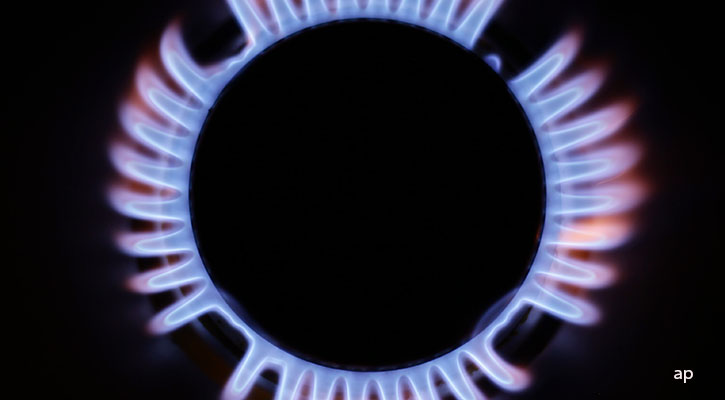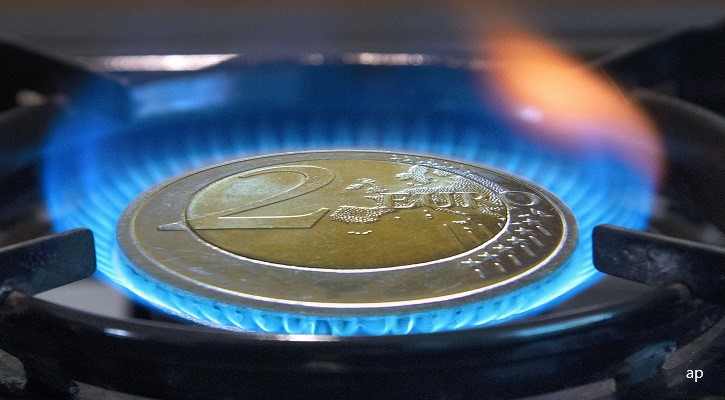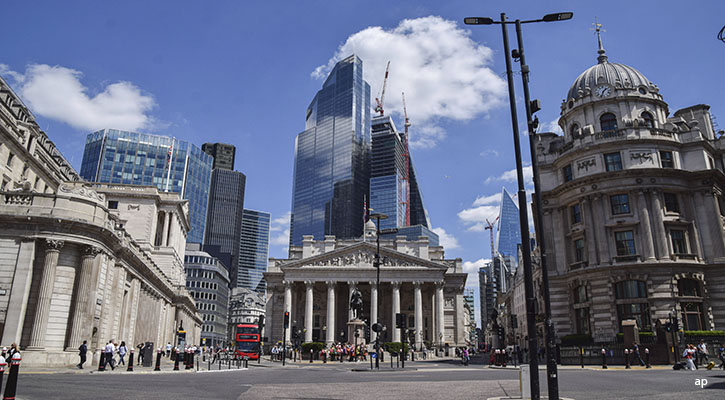
UK inflation has soared higher and higher this year, breaking through 10% in July to hit the highest level since 1982. But there was a small glimmer of light offered by the latest ONS figures, which showed a slowdown in the rise in inflation last month. The Consumer Prices Index dipped to 9.9% after a fall in petrol in petrol prices, according to the UK’s official statistics body.
As always with one month’s data, it’s too early to say that Team Transitory will have the final say – particularly as shoppers and economists have noted a steep increase in food price inflation. Food prices were more than 13% higher in August than a year ago, and this is particularly affecting "basic" food stuffs such as milk and eggs.
A dip below 10% is welcome but the UK still has one of the highest inflation rates in the developed world, and CPI is almost five times the Bank of England’s target.
Energy bills are feared the most by consumers and a long winter lies ahead. The government’s intervention last week to freeze energy bills, a move that could cost the country £100 billion plus, is expected to restrain inflation from electricity and gas bills. (The Office for National Statistics is currently calculating the likely effect of this move on inflation.) Some economists are already calling it – Capital Economics are expecting inflation to now peak at 11.3% in November.
Demand Surges
But power and gas consumption will increase as temperatures fall and after a long, hot summer, central heating may be switched back on after months of inactivity. While the UK is less dependent on Russian gas than other European nations, the continent’s energy complex is still in the midst of a supply shock – my colleague Valerio Baselli looks at this in detail – even before demand begins its usual seasonal increase.
To top that off, we appear to have reached a crucial moment in the Ukraine War, and one of Putin’s non-nuclear options remains to shut off natural gas exports this winter.
Has the inflation genie been put back in the bottle? Fairly recently, economists at investment banks Goldman Sachs and Citigroup were forecasting 20%-plus inflation in the UK, news that fuelled the sense of an escalating national crisis.
"There’s a real sense of expectation that the spectre of 20% inflation has been pushed firmly aside following the government’s energy price freeze announcement, but there is still a real possibility that there will be more bumps on the long road back to the two percent target," says AJ Bell analyst Danni Hewson.
A parallel conversation is occurring in the US, where one month’s lower inflation figures encouraged the more optimistic to declare that the war on inflation was over.
Yesterday that expectation was scuppered by another high inflation print – my colleagues Tom Lauricella and Dave Sekera look at this issue in their video "The CPI Report Looks Bad But Don’t Panic".
Pimco economists Tiffany Wilding and Allison Boxer said of Tuesday’s data: "The US had another scorching CPI report. Stickier and broader-based inflation through August suggests the Federal Reserve has more work to do to contain price increases, and the odds of a hard landing for the US economy continue to rise."
Looking ahead, Morningstar analysts still expect US inflation to fall back next year, as they explain in this excellent piece.
Deflation Ahead?
The Bank of England’s most recent meeting in August – tomorrow’s decision has been postponed because of the Queen’s death – stated that things will get worse before they get better. Inflation is expected to hit 13% this year, according to its forecasts, before falling back to the 2% target in the coming years.
As I said last month, this drop from 13% to 2% is hard to conceive in the heat of battle this year, particularly as the Bank’s forecast for peak inflation gets upgraded every single time it updates its numbers.
George Lagarias, chief economist at Mazars, is an outlier. He wonders if 2023 may see an abrupt reversal in the "ever higher inflation" narrative.
"If consumers remain sufficiently conservative with their discretionary expenses and the economy slows down as predicted, by the end of 2023 we could even be talking about deflation rather than inflation," says George Lagarias, chief economist at Mazars.
What happens next? The Bank of England is expected to push through another rate rise on September 2022, possibly a 50 basis point increase, and new chancellor Kwasi Kwarteng will provide more details on the fiscal side when he announces an "emergency" Budget.





























